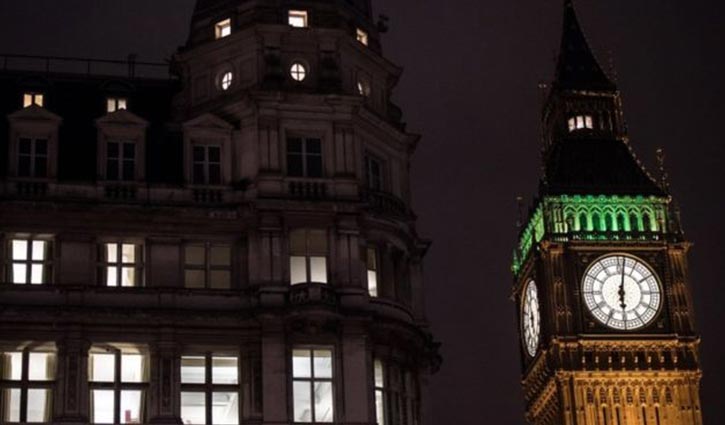Britain to start EU exit on March 29
3 || risingbd.com

International Desk: Britain will begin divorce proceedings from the European Union on March 29, starting the clock on two years of intense political and economic negotiations that will fundamentally change both the nation and its European neighbours.
Britain’s ambassador to the EU, Tim Barrow, informed European Council President Donald Tusk of the exact start date on Monday morning.
“We are on the threshold of the most important negotiation for this country for a generation,” Brexit Secretary David Davis said. “The government is clear in its aims: a deal that works for every nation and region of the U.K. and indeed for all of Europe – a new, positive partnership between the U.K. and our friends and allies in the European Union.”
The trigger for all this tumult is the innocuous-sounding Article 50 of the EU’s Lisbon Treaty, a never-before-used mechanism for withdrawing from the bloc. British Prime Minister Theresa May, under the Article, will notify Tusk of her nation’s intentions to leave the 28-nation bloc.
The article stipulates that the two sides will have until March 2019 to agree on a divorce settlement and – if possible – establish a new relationship between Britain, the world’s No. 5 economy, and the EU, a vast single market containing 500 million people.
The European Commission – the bloc’s legislative arm – said it stood ready to help launch the negotiations.
“Everything is ready on this side,” commission spokesman Margaritis Schinas said. Leaders of the 27 other EU nations will meet by the month of May to finalize their negotiating guidelines.
May’s 10 Downing Street office said the prime minister will make a statement in the House of Commons on the day Article 50 is triggered.
Britons voted in a June referendum to leave the EU after more than 40 years of membership. But May was not able to trigger the talks until last week, when the British Parliament approved a bill authorizing the start of Brexit negotiations.
But like any divorce, things may not go to plan.
The letter May sends next week will plunge Britain into a period of intense uncertainty. The country doesn’t know what its future relationship with the bloc will look like _ whether its businesses will freely be able to trade with the rest of Europe, its students can study abroad or its pensioners will be allowed to retire easily in other EU states. Those things have become part of life in the U.K. since it joined what was then called the European Economic Community in 1973.
It’s also not clear what rights the estimated 3 million EU citizens already working and living in Britain will retain.
And it’s not even certain that the United Kingdom – made up of England, Scotland, Wales and Northern Ireland – will survive the EU exit intact.
Scotland’s nationalist first minister, Nicola Sturgeon, is seeking a referendum on independence within two years. In the same Brexit vote in which most Britons chose to leave the EU, Scottish voters mostly wanted to stay. Sturgeon says Scotland mustn’t be “taken down a path that we do not want to go down without a choice.”
May has rejected that suggestion, saying “now is not the time” for another referendum on Scottish independence.
Pro-EU Labour Party Lawmaker Pat McFadden said Monday it is now up to May to deliver the good deal for Britain that she has promised.
“The phoney period is nearly over, and the real work of negotiations are about to begin,” McFadden said.
Conflicts are likely to arise soon. The EU wants Britain to pay a hefty divorce bill – estimates have ranged up to 60 billion euros (US$64 billion) – to cover pension liabilities for EU staff and other commitments the U.K. has agreed to.
British negotiators are sure to quibble over the size of that tab. Foreign Secretary Boris Johnson said a “vast” bill is unreasonable, and suggested that May should follow the “illustrious precedent” of former British Prime Minister Margaret Thatcher, who successfully sought a rebate from the bloc in 1984.
Negotiations will also soon hit a fundamental topic: Britain wants “frictionless” free trade, but says it will restore controls over immigration, ending the right of EU citizens to live and work in Britain. The EU, however, says Britain can’t have full access to the single market if it doesn’t accept the free movement of its people, one of the bloc’s key principles.
May has suggested that if talks stall she could walk away, saying that “no deal for Britain is better than a bad deal for Britain.”
That prospect alarms many British businesses. If Britain crashed out of the EU without a trade deal it would fall back onto World Trade Organization rules, leading to tariffs and other barriers to trade.
Parliament’s Foreign Affairs Committee has warned that the British government has not done enough to prepare for the “real prospect” that talks with the EU may break down, ending in no deal and “mutually assured damage” to both Britain and the EU.
Even if the talks go well, EU leaders say there is little chance that a final agreement on relations between the two parties will be reached by 2019. Some experts say the process could take a decade.
Agencies
risingbd/Dhaka/Mar 20, 2017/Nasim
risingbd.com



















